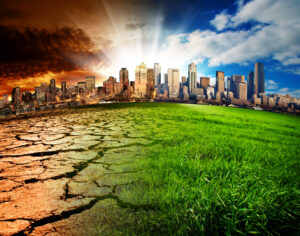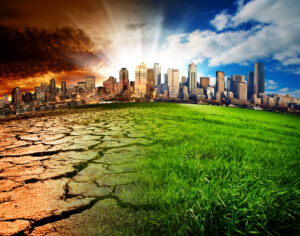
Climate change is one of the biggest challenges facing our planet today. With rising global temperatures, changing rainfall patterns, and increasing frequency of extreme weather events, agriculture is one of the sectors most vulnerable to its impacts. In this blog post, we’ll take a closer look at the relationship between agriculture and climate change, and why it’s so important that we take action now.
Agriculture and Climate Change: A Vicious Cycle
Agriculture and climate change are interrelated, and they form a vicious cycle. On one hand, the production of food contributes significantly to greenhouse gas emissions, making agriculture a major contributor to global warming. On the other hand, climate change is having a profound impact on agriculture, causing crops to fail, reducing soil fertility, and making it more difficult for farmers to grow food.
The effects of climate change on agriculture are already being felt around the world. Rising temperatures, droughts, and floods are causing crops to wither, and soil erosion is making it more difficult for farmers to grow food. In many areas, rising sea levels are causing saltwater intrusion, making fertile land unusable for agriculture.
The Impact of Climate Change on Food Security
The impacts of climate change on agriculture have far-reaching consequences, not just for farmers, but for all of us. As food production becomes more difficult and less reliable, prices are likely to rise, making it more difficult for people to access affordable, nutritious food.
In addition, as climate change continues to alter weather patterns, it will become more difficult for farmers to predict which crops will grow best in which areas. This will make it harder for them to plan their crops and could lead to a reduction in the variety of food available to us.
The Need for Action
The good news is that we can take action to mitigate the impacts of climate change on agriculture. Here are a few of the steps we can take:
- Reduce greenhouse gas emissions from agriculture: We need to find ways to reduce greenhouse gas emissions from agriculture, such as by reducing fertilizer use, improving soil management, and increasing the use of renewable energy on farms.
- Develop climate-resilient crops: Scientists are working on developing crops that are more resistant to the impacts of climate change, such as droughts, floods, and high temperatures.
- Support small-scale farmers: Small-scale farmers are often the most vulnerable to the impacts of climate change, as they often lack the resources to adapt. We need to support them by providing them with the resources and training they need to become more resilient.
In conclusion, agriculture and climate change are closely connected, and the impacts of climate change on agriculture will have far-reaching consequences for us all. It’s important that we take action now to mitigate these impacts and ensure that we have a sustainable food future. By reducing greenhouse gas emissions from agriculture, developing climate-resilient crops, and supporting small-scale farmers, we can ensure that we have a sustainable food future for generations to come.

